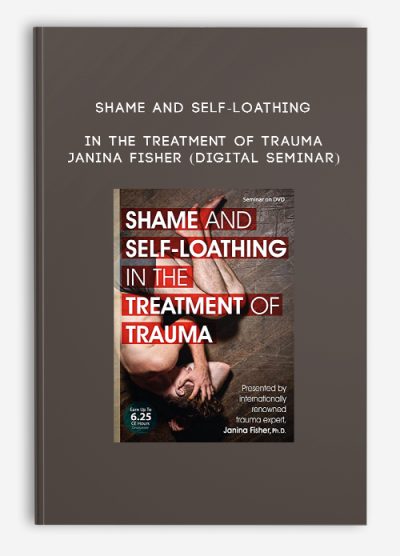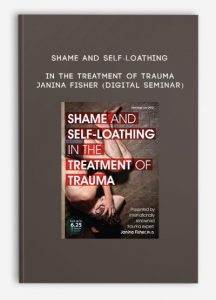Shame and Self-Loathing in the Treatment of Trauma – JANINA FISHER (Digital Seminar)
Description:
Shame often prevents your traumatized clients’ recovery and hampers their ability to find relief and perspective despite effective treatment. Feelings of worthlessness and inadequacy interfere with taking in positive experiences, leaving only hopelessness. Don’t miss this rare opportunity to learn effective experiential exercises drawn from Sensorimotor Psychotherapy from internationally renowned trauma expert Janina Fisher, Ph.D. Dr. Fisher will show you how to help clients relate to their symptoms with mindful dual awareness and curiosity rather than automatic acceptance. If you are frustrated with the lack of treatment success in your traumatized clients, this workshop will provide the solutions for long-term healing.
Despite your best efforts, unshakeable feelings of shame and self-hatred often undermine treatment: your clients repeatedly take two steps forward, then one step back. In this one of a kind workshop you will understand shame from a neurobiological perspective – as a survival strategy driving somatic responses of automatic obedience and total submission – enforced by the client’s punitive introspection.
With this recording, you will learn to integrate traditional psychodynamic and cognitive-behavioral techniques with Sensorimotor interventions that emphasize posture, movement and gesture. With these new techniques, issues of shame can become an avenue to transformation rather than a source of stuckness.
Outline:
The Neurobiology of Shame
- The role of shame in traumatic experience
- Shame as an animal defense survival response
- Effects of shame on autonomic arousal
- Why shame is so treatmentresistant
Shame and Attachment: Its Evolutionary Purpose
- Shame and the attachment system
- Rupture and repair in attachment formation
- What happens to shame without interpersonal repair
The Meaning of Shame in the Treatment of Trauma
- Disgust, degradation, and humiliation interpreted as “who I am”
- Cognitive schemas that exacerbate shame
- Internal working models predict the future and determine our actions
Treating Shame: Working from the “Bottom Up”
- Sensorimotor Psychotherapy: Physiological state as the entry point for treatment
- Regulating shame states with somatic interventions
- Using mindfulness-based techniques to inhibit self-judgment
Healing Shame: Acceptance and Compassion
- Re-contextualizing shame as a younger self or part
- Dual awareness of who we are now and who we were then
- Getting to know our “selves”
- Bringing our adult capacity to our childhood vulnerability
NLP online course
So what is NLP?
Firstly, NLP stands for Neuro-Linguistic Programming. Secondly neuro refers to your neurology;
Thirdly linguistic refers to language however, programming refers to how that neural language functions.
As a result,In other words, learning NLP is like learning the language of your own mind!
Moreover, NLP is the study of excellent communication–both with yourself, and with others.
It was developed by modeling excellent communicators and therapists who got results with their clients.
NLP is a set of tools and techniques, but it is so much more than that.
In conclusion, It is an attitude and a methodology of knowing how to achieve your goals and get results.
Preview Information:
Original Page
Archive Page














Lord –
This is Digital Download service, the course is available at Vincourse.com and Email download delivery.